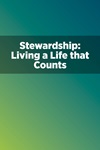Note: This article is excerpted from The Cost of Community.
"Blessed are the poor in spirit, for theirs is the kingdom of heaven."—Matthew 5:3
As Little Flowers Community began our journey of exploring and embracing the teachings of the Sermon on the Mount—a message about how to live in community—the first beatitude was significant. Because our neighborhood is a high-risk inner-city community, with many of our own members struggling with poverty in various forms, it was not difficult for us to understand the material implications of being "poor in spirit." But not because we embrace some romantic ideal that poverty makes people somehow predisposed to righteousness. Far from it! Many of the poor we have come to know and call friends in our years of ministry would rob you blind given the opportunity. Rather, poverty often strips away the pretense that wealth and privilege provide, exposing our universal brokenness and sinful nature. More often than not with the poor, what you see is what you get.
Isolated from Poverty
However, not every Christian lives in such an inner-city context. Not every Christian community is in proximity to the kind of poverty we see every day. While I would never suggest that all Christians should abandon the rural and suburban neighborhoods they call home and join us in the so-called slums, I am deeply concerned that our lives are too easily isolated from the realities of poverty, both locally and globally. The way we live in relation to both poverty and wealth must suffer the intense scrutiny Scripture demands, and then we must make the necessary changes to our lives. After all, when God said to his people that "there need be no poor among you" (Deuteronomy 15:4), he wasn't suggesting segregation.
If we attempt to merely apply these lessons as principles that can be attached to our current lives of faith, we will surely fail. The implications of this teaching on every aspect of life are staggering. If we truly embrace a poverty of spirit in which we pursue humility and genuine repentance, it will invariably force us to examine every aspect of how we live as individuals, families, and communities of faith, demanding repentance and active change when necessary. This first beatitude calls us to "follow Jesus through the eye of the needle."
Faith Like the Haitians
That phrase is the title of a book my friend Kent Annan, whose commitment to live out this beatitude led him and his wife into a life of service and solidarity with the poor of Haiti. Already devastated by poverty, corruption, and the deep scars of slavery and racial tension, Haiti was rocked in January 2010 with a massive earthquake, plunging the nation further into hopeless despair. For Kent, asking those difficult questions led him to a life of genuine risk, great cost, and insurmountable odds. Visiting Haiti with Kent a few months after the quake, surrounded by what could only be described as a war zone, I was humbled and challenged by the example of the Haitian Christians I met. Here is a people who, already suffering under poverty, had lost everything in a trauma so great that it would define an entire generation. And yet their selfless commitment to each other and their incredible hospitality reflected Christ in a way I have rarely encountered in my own wealthy nation. In the midst of the truest poverty, they are living in the kingdom of God.
Later in the Sermon on the Mount, Jesus makes this even more clear: "Do not store up for yourselves treasures on earth, where moths and vermin destroy, and where thieves break in and steal. But store up for yourselves treasures in heaven, where moths and vermin do not destroy, and where thieves do not break in and steal" (Matthew 6:19-20).
A Lesson that Requires Action
The lesson of this first beatitude makes demands of the rich and poor alike. For the wealthy (the category most of us belong to), it requires that we live counterculturally in a world where material wealth is the unquestioned ideal, embracing a life of radical generosity and of absolute dependence on God and his people. Not even material security can be a first priority.
For the poor (and this is a lesson I hesitate to share out of my own position of wealth and privilege), it requires embracing a sufficiency in Christ that, while not ignoring or blindly accepting the injustices and sufferings of poverty, does not seek reparations by pursuing and embracing the empty promises of materialism and privilege. All of us must seek to live in such a way that in all things we will decrease so that Christ might increase.
—Jamie Arpin-Ricci leads Little Flower community in Winnipeg, Manitoba, and is part of an Anglican lay order in the Franciscan tradition. Taken from The Cost of Community; © 2011 by Jamie Arpin-Ricci. Used by permission of InterVarsity Press.









